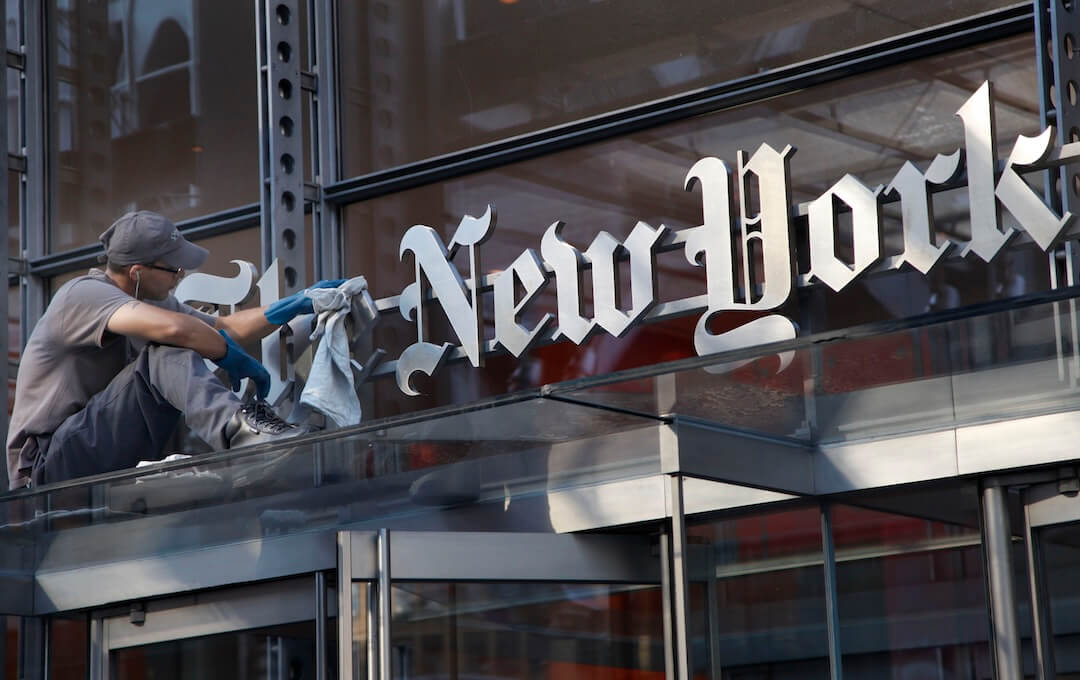This article was originally published by the Duke Reporters’ Lab and is republished here with permission.
This year’s elections are a global convergence of ballots, checkboxes and thumbprints, with voters in more than 64 countries and all of the European Union heading to the polls. Based on a Time magazine estimate, this democratic spectacle could potentially involve the equivalent of 49% of the planet’s population.
Just one problem: There aren’t enough referees.
For most of the past decade and a half, the global fact-checking community served that role, and experienced years of rapid growth. But based on the most recent counts from the Duke Reporters’ Lab, the number of reporting and research teams that routinely intercept political lies and disinformation is plateauing — exactly at the time when the world needs fact-checkers most.
Our latest count showed as many as 457 fact-checking projects in 111 countries were active over the past two years.
But so far in 2024, that number has shrunk to 439.
The run-up to June’s sprawling EU vote and this fall’s U.S. election campaign may nudge the numbers upward slightly. But a slight upswing is nothing like fact-checking’s rocket-like ascent over the past 15 years.
When PolitiFact won a Pulitzer Prize for its U.S. fact-checking in 2009, the award signaled the potential of this important new form of journalism. At that time, we counted 17 sites that consistently did similar work.
By 2016, the year of the UK’s final Brexit referendum and Donald J. Trump’s White House win, the count was 190 — an 11-fold increase.
Four years later, during the first year of the COVID-19 pandemic and Trump’s failed reelection campaign, the revised tally for 2020 more than doubled to 421.

The number of active fact-checkers per year, 2015 to 2024 (year-to-date). The Reporters’ Lab continuously updates its counts based on the start and stop dates of the fact-checkers. That means our numbers are revised year-to-year. (Courtesy)
An abrupt shift
In the years since our lab began producing this annual census in 2014, fact-checking has become an international enterprise — quickly growing the community on six of the seven continents. Until it didn’t.
In Asia, for instance, the number of fact-checking operations and bureaus jumped from 94 in 2019 to 124 in 2021 — a 32% increase. And much the same happened in Africa, where 32 fact-checkers in 2019 became 54 in 2021 — up 69%.
But the pace dramatically leveled off over the following years. From 2021 to 2023, the range in Asia’s fact-checking count was between 124 and 130. In Africa, the number hovered around 55.

Number of fact-checkers by continent, 2018 to 2024 (year-to-date). (Courtesy)
The leveling off started earlier in other parts of the world. From 2020 to 2023, the range in Europe was between 120 and 135.
The number in the Americas decreased. From 2020 to 2023, South America went from 44 to 39 while North America went from 94 to 90.
The flatter Earth
Our conversations with fact-checkers indicate a few factors contributed to the flattening.
Like every industry and institution, fact-checkers had to manage their teams through the pandemic. And in the early days of COVID-19, they also had to rejigger their organizations to cover the slow-motion disaster. That meant adding health reporting to beats that more typically focused on a mix of politics, hoaxes and digital scams.
Fact-checkers, like other journalists, also have struggled to raise money to pay their operating costs.
Atop those challenges, a certain amount of turnover was common in the fact-checking business. Teams in one place would decide to close up shop, often for financial reasons. At the same time, new fact-checkers would start their own ventures.
For most of the past decade, the number of new fact-checking operations far outnumbered the ones that had shut down — often by wide margins. In one year, 2017, the ratio was 11 to one, with 55 new fact-checkers and five that closed down.
Then there was last year: 2023 was the first time there were more departing fact-checking teams than new ones — 18 closures to 10 starts.

Net new fact-checkers per year. The Reporters’ Lab updates our counts regularly as we identify and add new sites to our fact-checking database. (Courtesy)
Roughing the refs
Perhaps the biggest challenge some fact-checking projects face has less to do with the fundamentals of running a newsroom or a research team. It’s about the vitriol that fact-checkers encounter from hostile governments and politicians, as well as their supporters
From Bangladesh to Brazil, scurrilous attempts to undermine fact-checking are familiar tactics, especially for the reporters and researchers who work in countries where press freedom hardly exists.
Based on data from Reporters Without Borders’ recently released World Press Freedom Index, 69 fact-checking organizations in the Reporters’ Lab list are based in about 20 countries with situations that are rated “very serious.” Starting from the most serious places, those fact-checkers operate in Syria (1), Afghanistan (2), Iran (1), China (5), Myanmar (2), Egypt (4), Iraq (2), Cuba (1), Belarus (1), Saudi Arabia (1), Bangladesh (5), Azerbaijan (1), India (26), Turkey (3), Venezuela (3), Yemen (2), Pakistan (2), Cambodia (1), Sri Lanka (5) and Sudan (1). The list from Reporters Without Borders also counts Palestine, where there are at least three fact-checking teams. Palestine is between Turkey and Venezuela in the index.
Even in less dangerous places, politicians have enlisted companies and institutions to use economic pressure against fact-checkers.
The fact-checking community saw multiple examples in 2023. In South Korea, conservative politicians pressured the country’s leading search engine, Naver, to cancel its financial support for SNU FactCheck — a project of the Seoul National University Institute of Communications Research. Since 2017, SNU FactCheck’s director, EunRyung Chong, worked with her country’s leading media organizations to showcase fact-checking reports using a shared system for rating questionable claims — especially the claims of politicians. Naver not only dropped its financial support, but it also took away SNU FactCheck’s access to the search company’s audience. Ultimately, the European Climate Foundation, a nonpartisan organization based in the Netherlands, stepped in to provide support that allowed SNU FactCheck and its media partners to continue their work — including coverage of last month’s National Assembly election.
In Australia, conservative politicians were more successful in derailing a yearslong partnership between the country’s ABC News network and RMIT University. Egged on by the conservative outlets of News Corp. Australia, lawmakers attacked the reporting of RMIT ABC Fact Check based on claims of bias and misuse of public funds. ABC has since announced its plans to sever the collaboration with the university and launch a new program aimed at misinformation.
Agence France-Presse is one of the largest fact-checking organizations, with teams posted in dozens of bureaus around the world. The French news agency lists most of the participating journalists — but not all. “While we endeavour to be as transparent as possible about our staff, some countries and environments are more hostile than others when it comes to journalism,” the list notes. “For that reason, some of the journalists on our … team will not be named below to protect their safety. ”
About the Reporters’ Lab and its census
The Duke Reporters’ Lab began tracking the international fact-checking community in 2014, when director Bill Adair organized a group of about 50 people who gathered in London for what became the first Global Fact meeting. Subsequent Global Facts led to the creation of the International Fact-Checking Network and its Code of Principles.
The Reporters’ Lab and the IFCN use similar criteria to keep track of fact-checkers, but use somewhat different methods and metrics. Here’s how we decide which fact-checkers to include in the Reporters’ Lab database and census reports. If you have questions, updates or additions, please contact Mark Stencel, Erica Ryan or Joel Luther.
Previous fact-checking census reports
Note: The Reporters’ Lab regularly updates our counts as we identify and add new sites to our fact-checking database. As a result, numbers from earlier census reports differ from year to year.
- April 2014
- January 2015
- February 2016
- February 2017
- February 2018
- June 2019
- June 2020
- June 2021
- June 2022
- June 2023
June 6, 2024: This article was updated to more better characterize the reasons for the nonrenewal of the RMIT ABC Fact Check partnership after seven years.









